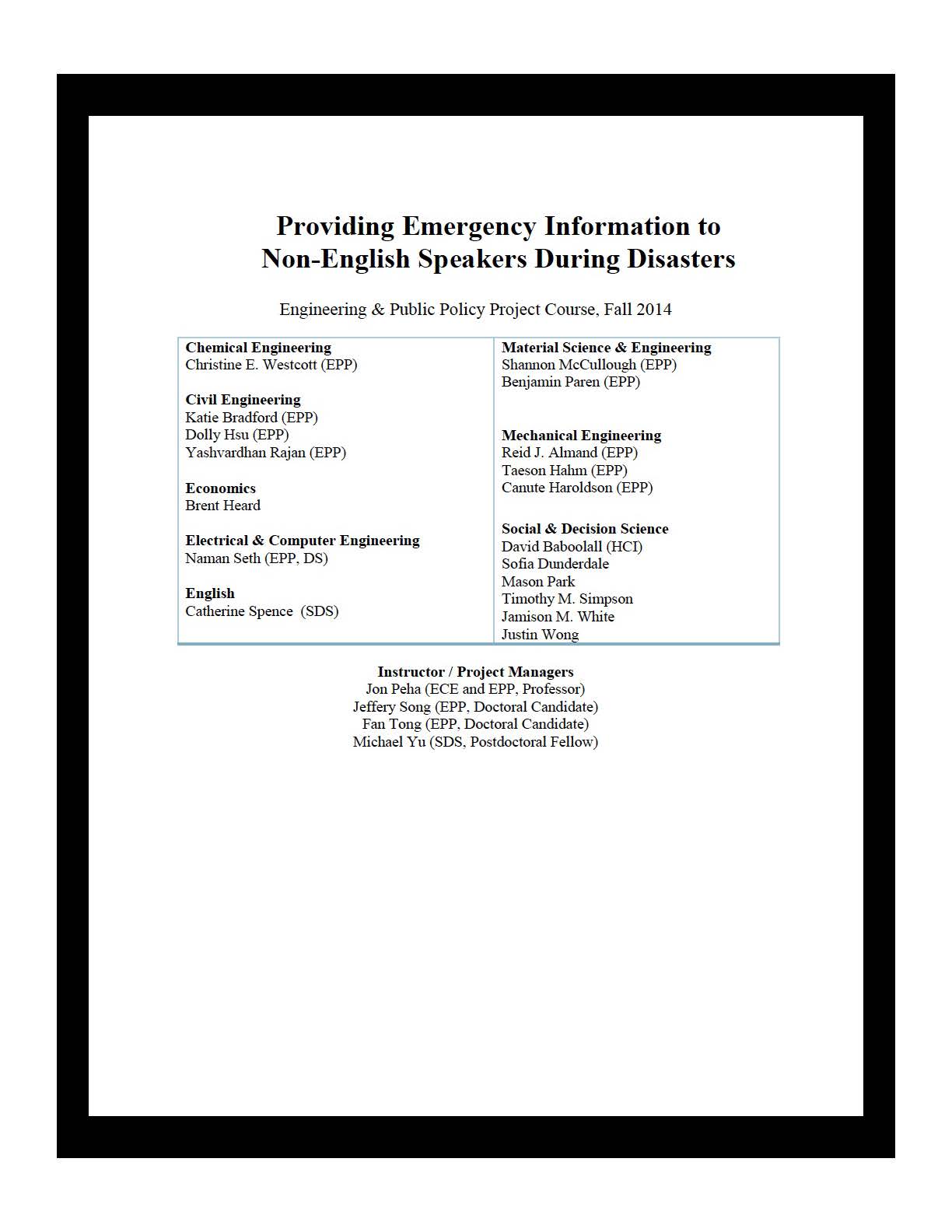Emergency Preparedness and Risk Analysis
Facing the current global coronavirus pandemic, this month we highlight past projects that had a focus on emergency preparedness and response, risk analysis or highlighted issues that have surfaced in our society with the broad stay-at-home orders.
Although primarily focused on natural disasters rather than medical epidemics, the Fall 2007 project Preparing for the Worst: Understanding How to Prepare for and Respond to a Disaster encourages us to “prepare for the worst” by investigating the information needed for being able to appropriately respond to a disaster. Students compared the existing recommendations, diagnosed inadequacies in suggestions and communications, and explored how sensitive different economic and social constraints could hinder the response.

Our Spring 2019 project Moving Toward A No-Carbon Economy delved into the proposals of the Green New Deal – a policy shift toward renewable energy, energy efficiency, and shifts across the economy to reduce carbon emissions. Our economy is now testing some of those analyses, with commuting and commercial building energy replaced by work-from-home energy (we didn’t factor in schools being closed though), eliminating air traffic (although replaced by high-speed rail in our case), and changes to manufacturing to reduce carbon emissions.
As we learn more about the populations at most risk, one that stands out are those who do not speak English or speak English as a second language. Even if they get care, that care may be compromised due to the language barrier. Providing Information to Non-English Speakers During Disaster in Fall 2014 addressed the challenges of providing emergency information to non-English speakers during disasters. The project looked at providing information in multiple languages, the reliability of AI versus in-person translation, preferences of non-English speakers, and strategies local governments need to employ prior to disasters.

Multiple other projects have focused on emergency preparedness, economic and social impacts of disasters or accidents, and communication of emergency issues to various audiences. Some other projects that have focused on these topics were Traveling in a Risky World (Fall 2004), Wireless Emergency Alerts: Future of Alerts and Warnings (Spring 2017), Bridging the Digital Divide (Fall 2012), Emergency Messaging with Social Media (Fall 2012), and We Know Where You've Been: Privacy Challenges Posed by Behavioral- and Location- Tracking Technologies (Spring 2010) just to name a few.